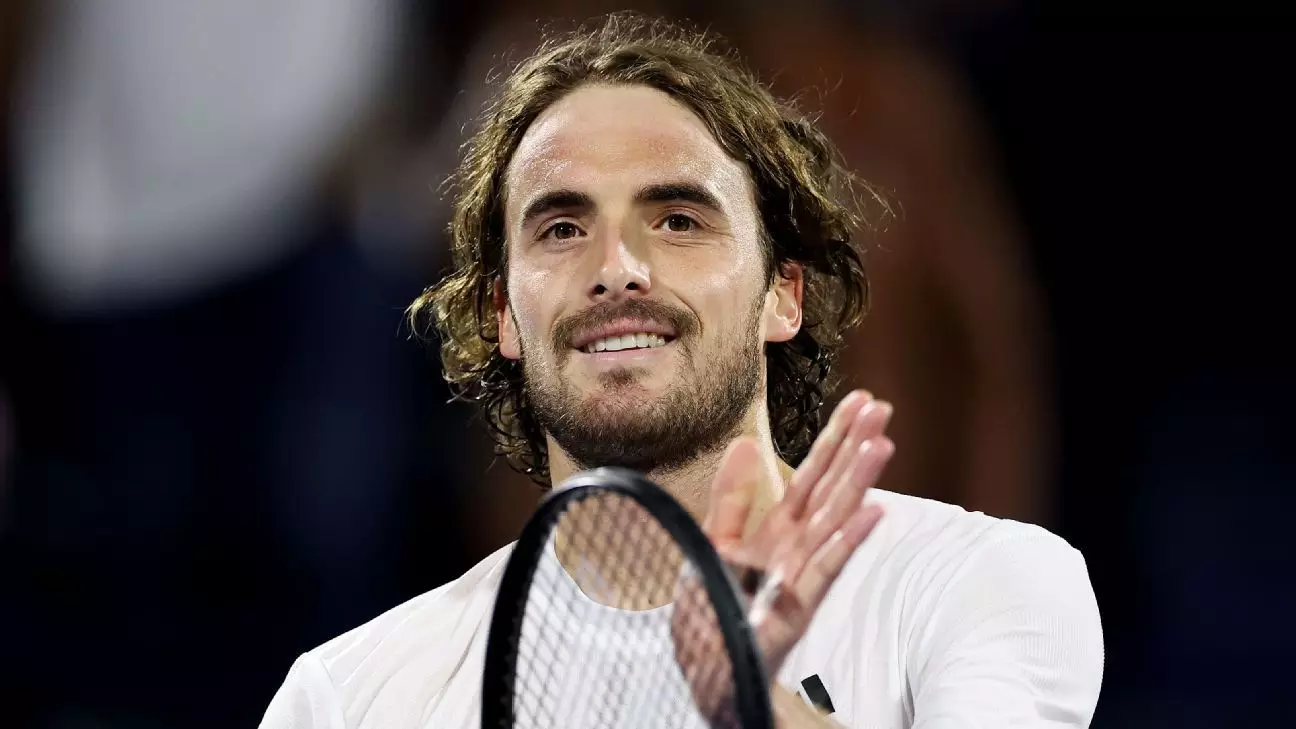In a sport as competitive and unpredictable as professional tennis, strategic partnerships often define the trajectory of a player’s career. Stefanos Tsitsipas’s decision to rehire his father, Apostolos, as his coach marks a significant turning point—one that speaks volumes about the importance of trust, familiarity, and emotional grounding in high-stakes competition. After a notably turbulent period—marked by a short-lived collaboration with Goran Ivanisevic—the Greek star appears to be seeking comfort in the familiar, betting on familial bonds to regain his confidence and form. This move can be viewed not merely as a tactical change, but as a philosophical statement about resilience—sometimes, going back to where you started is the most courageous step forward.
The Struggles of Performance and the Weight of Expectations
Since his deep runs in the 2021 French Open and 2023 Australian Open, Tsitsipas’s descent into the 30th ranking has been disconcerting for fans and critics alike. His recent results have been underwhelming: falling early in Grand Slam tournaments and struggling to reach finals, his confidence appears shaken. The fractious partnership with Ivanisevic, despite the Croatian’s illustrious career—leading Novak Djokovic to multiple Grand Slam victories—did little to reverse Tsitsipas’s fortunes. The harsh critique from Ivanisevic after Wimbledon, calling him “unprepared,” underscores a painful reality: external coaching alone cannot compensate for internal doubts or the mental fragility that often plagues young athletes. This period has exposed the vulnerabilities beneath his promising talent, raising questions about whether external expertise or internal resolve is more pivotal to his resurgence.
The Power of Emotional Reconnection in Athletic Growth
Ultimately, Tsitsipas’s social media announcement reveals a nuanced understanding of what might truly propel him forward: the significance of emotional security and authentic relationships. By reuniting with his father, the player seems to be prioritizing emotional stability over the tactical machinations of professional coaching. Family support, especially in a demanding sport like tennis, can serve as an anchor in turbulent times. The trust built over years of shared experiences might infuse him with renewed determination. Many athletes have found that their best performances emerge not solely from refined techniques but from internal peace and clear purpose—elements often cultivated through close, trusting relationships. Tsitsipas’s confidence in sharing this journey reflects a firm belief that sometimes, the most effective strategy is to revisit the foundation of one’s identity and beliefs.
Resilience as a Defining Attribute in Modern Tennis
What stands out most about Tsitsipas’s latest move is an unapologetic embrace of resilience and self-awareness. While critics may focus on his recent struggles, it’s the willingness to recalibrate—returning to familial roots—that signals genuine mental toughness. His career trajectory isn’t dictated solely by coaching input but by a player’s ability to adapt and find inner strength amid adversity. The tennis landscape is littered with stories of athletes who overcame setbacks by reconnecting with their core motivations. Tsitsipas’s evident trust in his father indicates a recognition that success is not just about external guidance but also about aligning one’s actions with deeply held values. His journey underscores an important truth: sometimes, the most powerful way to move forward is to circle back to where it all began, armed with greater insight and renewed purpose.


Leave a Reply